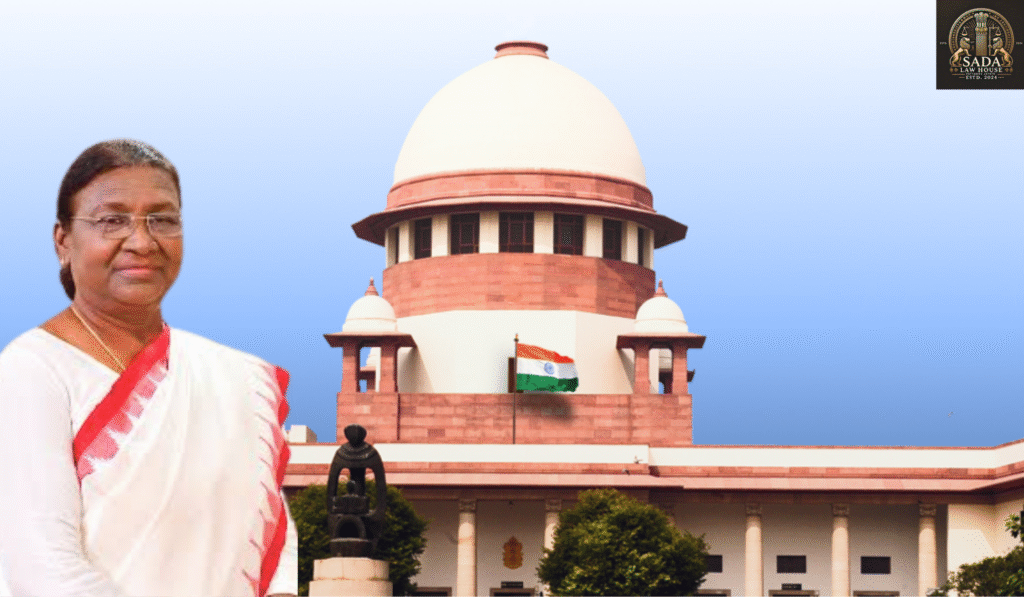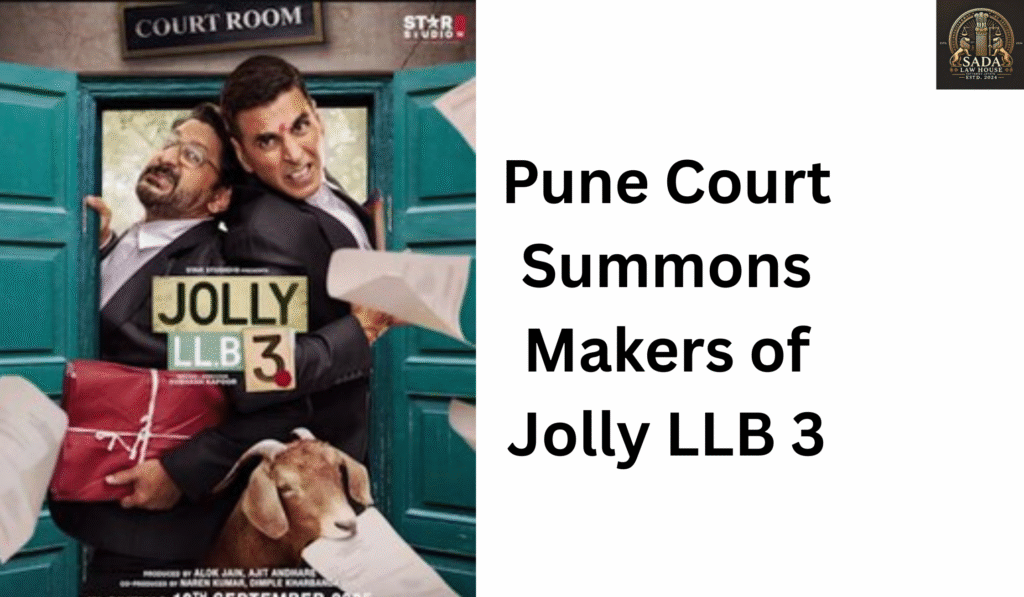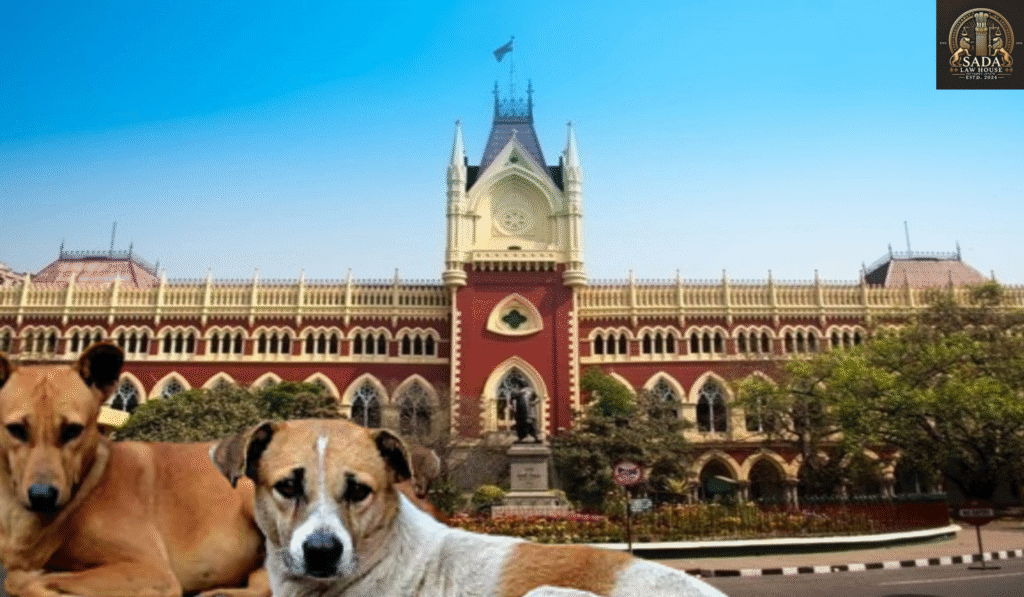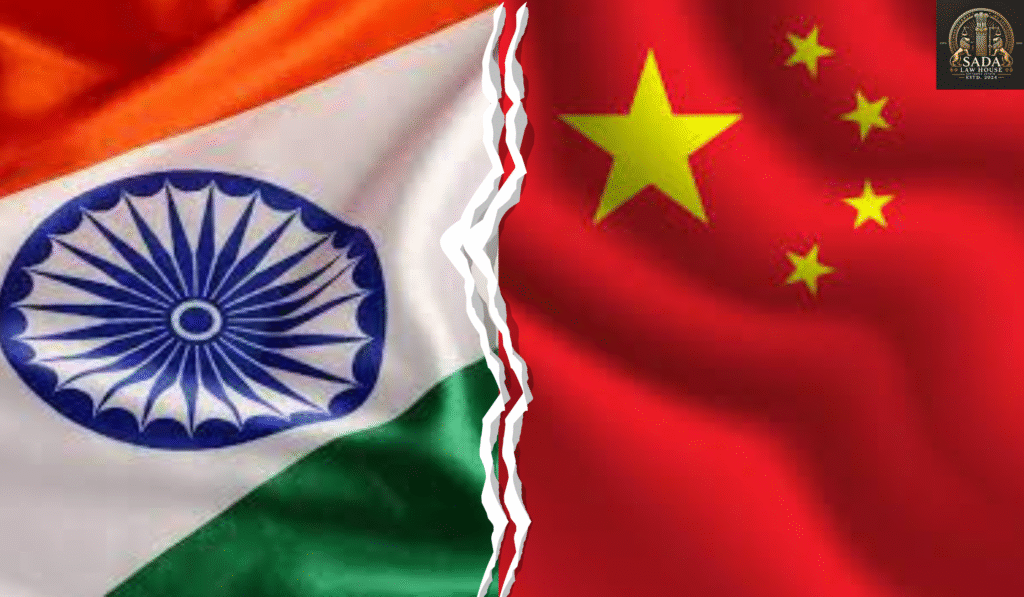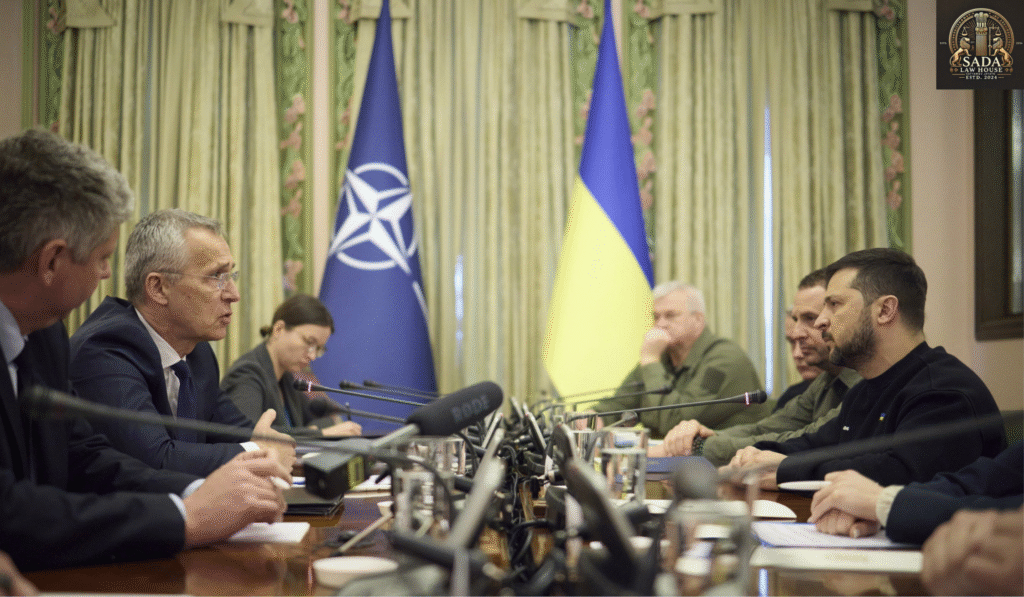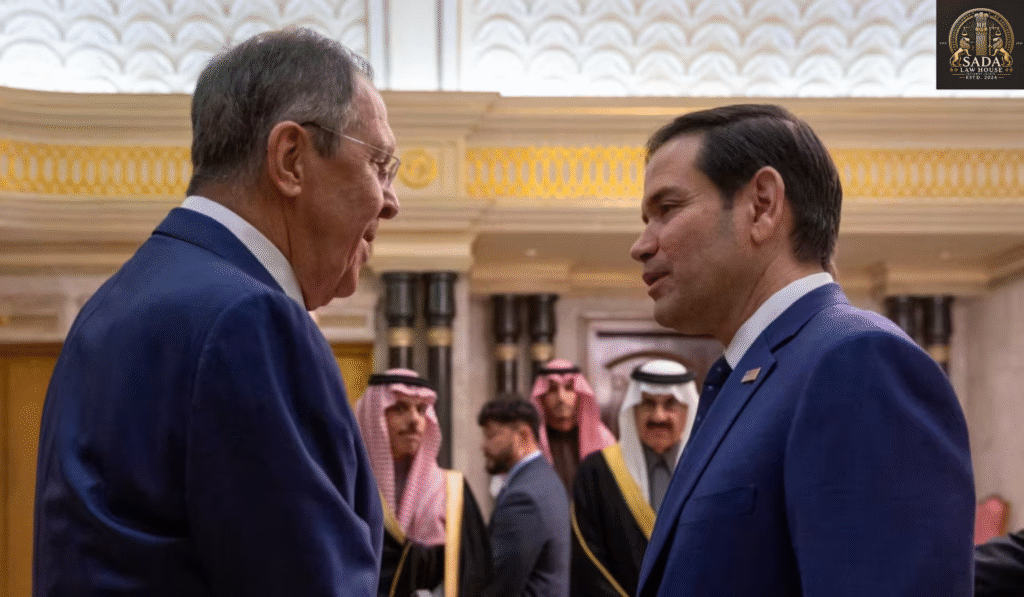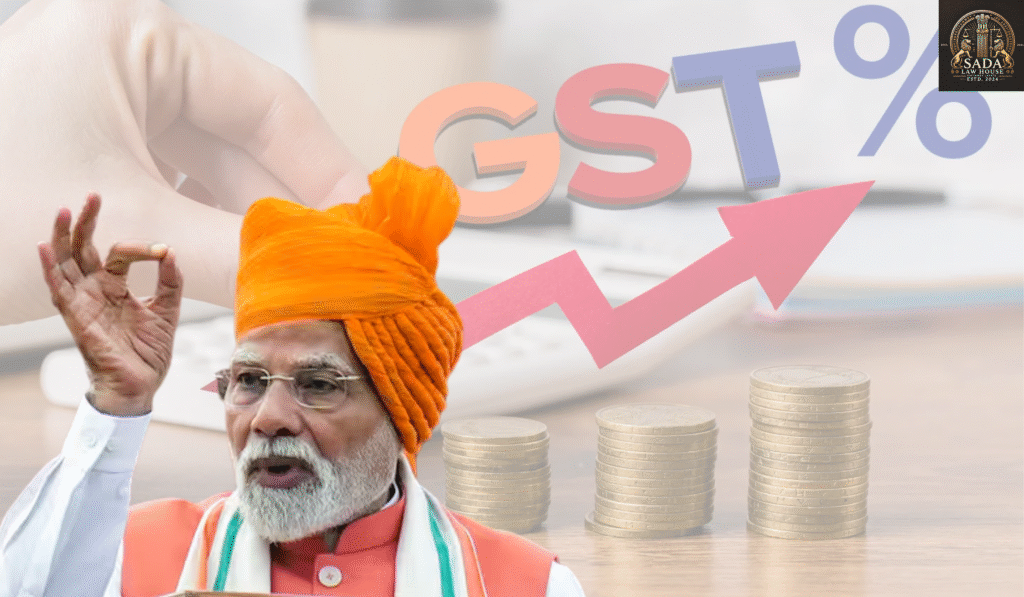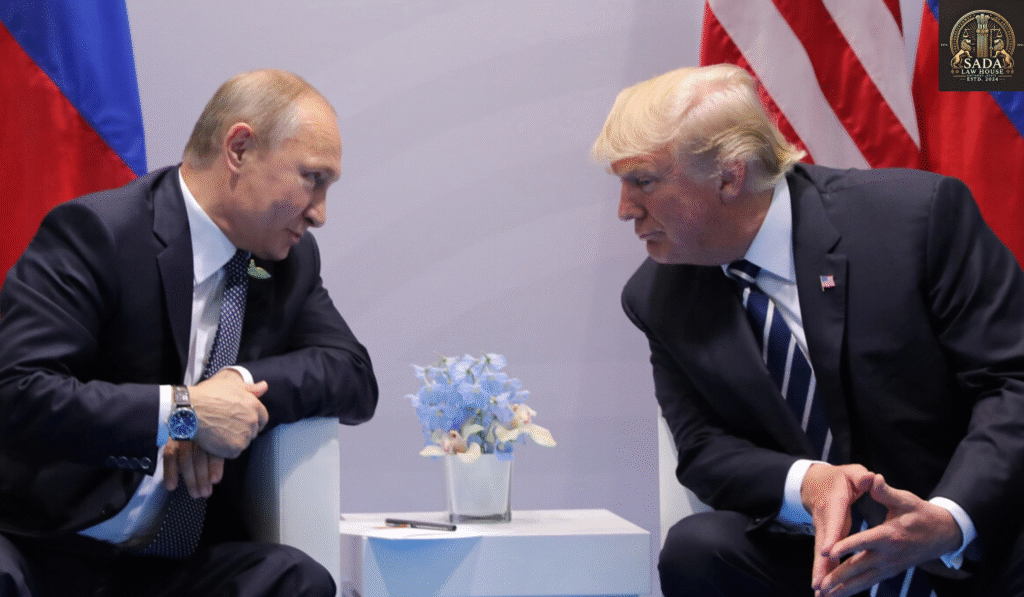Presidential Reference on Governor’s Timelines: Supreme Court Hearing Day 3
Trending Today Presidential Reference on Governor’s Timelines: Supreme Court Hearing Day 3 Pune Court Summons Makers of Jolly LLB 3 Over Alleged Insult to Legal Profession Calcutta High Court Seeks State’s Response on Stray Dog Sterilisation Plea LEGAL INTERNSHIP OPPORTUNITY AT FINJURIS LLP INTERNSHIP OPPORTUNITY AT SEMITA LEGAL, ADVOCATES & SOLICITORS, NOIDA LEGAL JOB OPPORTUNITY AT LAW CHAMBERS OF PURTI GUPTA, DELHI LEGAL JOB OPPORTUNITY AT ARMS LEGAL AND ASSOCIATES, KOLKATA LEGAL INTERNSHIP OPPORTUNITY AT KABI AND ASSOCIATES, DELHI India Temporarily Removes Cotton Import Duty to Support Textile Sector India–China Border Rapprochement Signals Strategic Shift Amid U.S. Tensions Presidential Reference on Governor’s Timelines: Supreme Court Hearing Day 3 Prabhat Kumar Biltoria 02 June 2025 The Supreme Court of India continues its Presidential Reference hearing on whether Governors and the President of India can face judicially imposed timelines for decisions on State Bills. Introduction On Day 3 of the Presidential Reference hearing, a Constitution Bench of the Supreme Court of India examined whether the President and Governors can be placed under judicially determined timelines for decisions on State Bills. The five-judge Bench was headed by Chief Justice of India (CJI) BR Gavai, along with Justices Surya Kant, Vikram Nath, PS Narasimha, and Atul S Chandurkar. The Court heard detailed arguments from Solicitor General Tushar Mehta and senior advocates representing Tamil Nadu and Kerala. Submissions of Solicitor General Tushar Mehta Continuing his submissions, SG Tushar Mehta opposed judicially setting deadlines for constitutional authorities. He argued: No timelines in the Constitution: Where the Constitution is silent, courts cannot impose artificial deadlines. Exceptions to aid and advice: Cited Articles 200, 356, and 174, as well as the Nabam Rebia judgment, where Governors may act with limited discretion. Case of Shamsher Singh (1974): Governors must not act as a parallel government. Political mechanisms exist: Disputes can be addressed through appeals to the Prime Minister of India, President, or political processes rather than judicial intervention. Mehta warned that allowing courts to fix such timelines would amount to judicial overreach. Bench Pushes Back on Indefinite Inaction The Bench, however, raised concerns over Governors potentially stalling Bills for years without action. Justice PS Narasimha: “Okay, we cannot specify a time limit, but a process needs to be worked out… how long can that be a dead end?” CJI BR Gavai: “If a constitutional functionary does not discharge functions without valid reasons, should the Court say we are powerless?” Justice Surya Kant: “What if Bills are pending for four years? Then what happens to the will of a two-thirds majority?” The judges suggested that absolute judicial restraint might undermine the functioning of State legislatures. Political Remedies vs. Judicial Remedies Mehta maintained that hard cases should not lead courts to create timelines, emphasizing that solutions lie in: Constitutional amendments Parliament processes Civic and political action However, the CJI countered: “Hard cases make good law.” He questioned the absence of safeguards when Governors delay Bills indefinitely. Mehta referenced Justice JS Verma, who cautioned against judicial encroachment into executive and legislative functions, arguing that failures should be corrected through democracy, not courts. Presidential Questions Discussed The Bench also briefly addressed some of the 14 questions referred by the President under Article 143: Question 8: Whether the President must seek the Court’s advice whenever a Governor reserves a Bill. CJI Gavai noted this would overburden the Court with advisory roles. Union–State disputes under Article 131: The CJI said such suits have proven ineffective in practice. Kapil Sibal’s observation: Senior advocate Kapil Sibal suggested broadening the scope of the reference beyond the core issue. Next Hearing The case will continue on Tuesday, August 26, 2025. Arguments are expected to focus on maintainability of the reference and the scope of judicial review over gubernatorial inaction. Conclusion The Presidential Reference on Governor’s timelines raises a constitutional dilemma — balancing judicial restraint with preventing executive inaction. The Supreme Court’s ruling could set a landmark precedent, defining the boundaries of judicial review, gubernatorial power, and State legislature functioning in India’s democracy. Leave a Reply Cancel Reply Logged in as Aliya Ansari. Edit your profile. Log out? Required fields are marked * Message* Case Laws K Umadevi vs Government of Tamil Nadu 2025: Supreme Court Recognizes Maternity Leave as Fundamental Reproductive Right Sada Law • June 20, 2025 • Case law • No Comments Supreme Court Judgment on Affinity Test in Scheduled Tribe Verification: Affinity Test Not Mandatory for ST Claims Sada Law • June 20, 2025 • Case law • No Comments Supreme Court Grants Bail Despite NDPS Act Section 37: Upholds Article 21 in Mohd. Muslim v. State (NCT of Delhi) Sada Law • June 20, 2025 • Case law • No Comments 1 2 3 … 5 Next »
Presidential Reference on Governor’s Timelines: Supreme Court Hearing Day 3 Read More »

